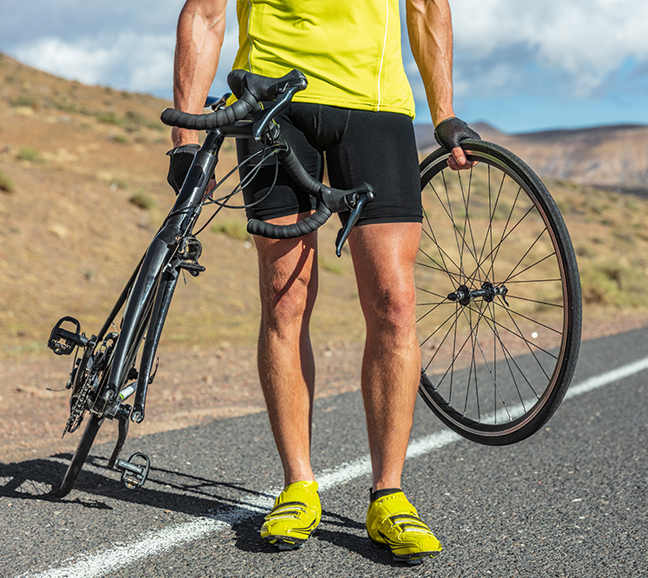Diet on two wheels: how nutrition affects a cyclist’s performance

Cyclists, both recreational and professional, well know that their performance on two wheels depends not just on training, but also on proper nutrition. Diet is crucial for achieving better results, preventing injuries, and faster recovery. In this article, we will explore how nutrition impacts a cyclist’s performance.
The importance of proper diet for cyclists
Nutritional foundations
Cyclists need a balanced diet that provides energy, supports muscle recovery, and maintains overall condition. The key components are carbohydrates, proteins, fats, as well as vitamins and minerals.
Carbohydrates
They are the main source of energy for cyclists. They provide fuel for muscles and the brain, especially during prolonged effort.
Proteins
Important for the repair and regeneration of muscles. Protein helps in rebuilding muscle fibers damaged during cycling.
Fats
They are an important source of energy, especially during long and less intense rides.
Vitamins and minerals
Essential for maintaining health, they support metabolism, and help in muscle regeneration and function.
Hydration
Proper hydration is as important as diet. Water regulates body temperature, transports nutrients, and aids digestion.
Practical dietary tips
Before riding
A meal rich in carbohydrates with a small amount of protein will help fuel the body with energy. An example could be oatmeal with fruit and yogurt.
During the ride
On long routes, it’s important to replenish energy. Energy bars, gels, or even bananas are good options.
After riding
A meal containing protein and carbohydrates will aid in muscle recovery. Examples include chicken with rice or pasta with a protein sauce.
Sample meal plan
Breakfast
Vegetable omelet
Whole grain bread
Fresh fruits
Snack
Energy bar
Nuts
Yogurt
Lunch
Pasta with salmon
Mixed vegetable salad
Quinoa with vegetables
Dinner
Grilled chicken breast
Brown rice
Steamed vegetables
Supplementation
Sometimes, it’s worth considering supplementation, especially electrolytes during long rides and protein to support muscle recovery.
Diet has a huge impact on a cyclist’s performance. Properly balanced meals, rich in carbohydrates, proteins, and fats, as well as proper hydration, are key to maintaining energy, efficiency, and quick recovery. Remember, every body is different, so it’s important to tailor your diet to individual needs and goals. Let’s also remember about a functional bike, which can be checked at a Bicycle Repair Station.
This article provides a comprehensive look at how proper diet impacts a cyclist’s performance, offering readers practical tips and sample meal plans.

